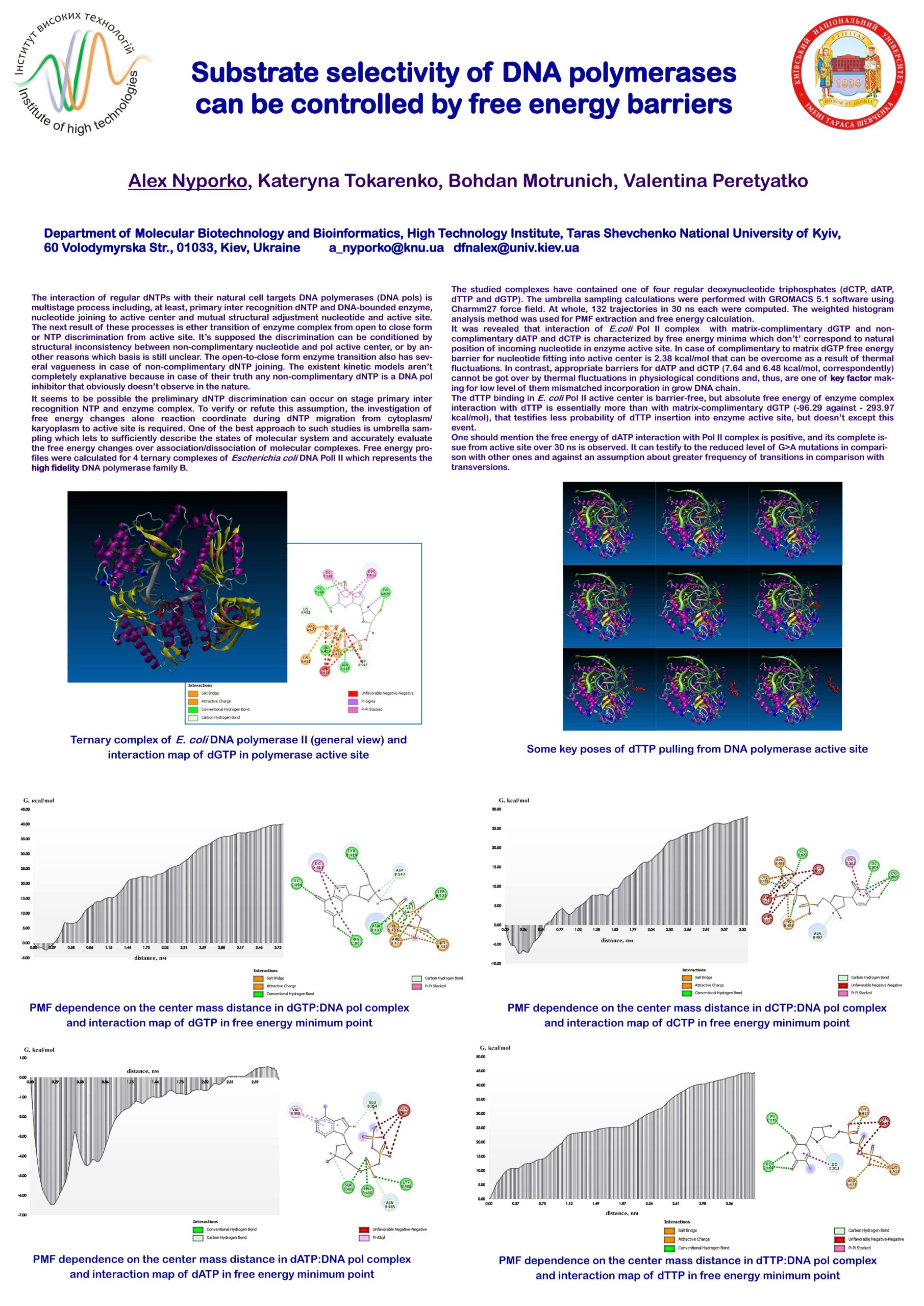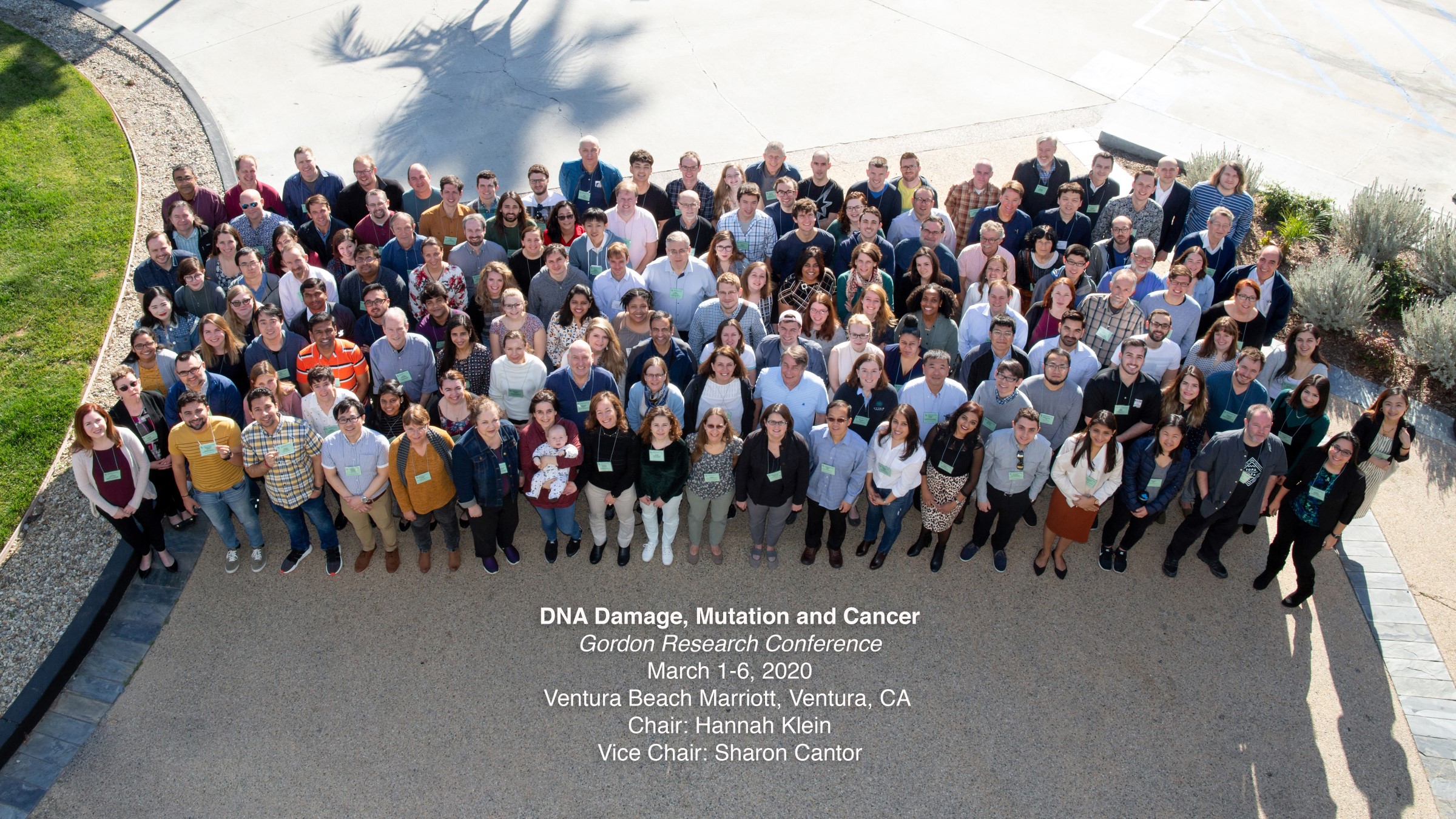Thanks to a grant from the US-Ukraine Foundation Biotech Initiative I obtained a unique possibility to participate in the Gordon Research Conference “DNA Damage, Mutation and Cancer”, held in Ventura, CA, USA, on 1-6 March 2020, and to present my team's investigation “Substrate selectivity of DNA polymerases can be controlled by free energy barriers”.
The Gordon Research Conferences (GRC) is a non-profit, educational organization that has served the scientific community since 1931 with the mission to "provide an international forum for the presentation and discussion of frontier research in the biological, chemical, physical and engineering sciences and their interfaces". GRC currently manages over 700 different ongoing conferences and seminars. Gordon Conferences are embraced by the mainstream scientific community as the leading forum for the presentation of research at the frontiers of science and the place to build relationships with leading scientists in their field from around the world. Complete information concerning the Gordon Research Conferences can be found at www.grc.org.
GRC DNA Damage, Mutation and Cancer is a regular scientific event being held since 2000 (before 2006 – GRC Mutagenesis and Carcinogenesis). It is focused on exploring the various sources of DNA damage, how DNA lesions are detected and repaired, and the cellular consequences of repair. This understanding can be exploited to determine vulnerabilities in the repair processes for cancer diagnoses, treatments and therapies. Of particular new interest is the appreciation of the range of mutations that are associated with damage and repair, including the intersection of replication and transcription, the importance of chromosome rearrangements, and the immune response associated with DNA damage and repair. The conference presents new sessions on these topics and aims to consider the newest approaches and appropriate technologies.
The GRC DNA Damage, Mutation and Cancer 2020 was an excellent platform to stimulate constructive interactions among an international group of experts including academic scientists, researchers from industry, and practicing clinicians. The scientific and organization levels of the conference were extremely high. Over 200 people from the USA, Canada, UK, Japan, Australia, France, Spain, Denmark, Sweden, Switzerland, Singapore, India, and Israel attended the current conference. There was only one participant from Ukraine. The presented investigations really appeared to be on the frontiers of modern molecular biology and biotechnology, and for the majority of them it was the first promulgation.
Participation in this event gave me a possibility to estimate state-of-the-art molecular biology of genome instability, its role in cancer origin and modern biotech approaches to their investigation and treatment. It was especially useful because at least one-third of the research topics presented at the conference unfortunately are still out of the attention of Ukrainian researchers.
My poster report aroused keen interest and lively discussions with colleagues, mainly from the USA and Great Britain. It is gratifying that my computational results predicting a high probability of cytosine to thymine replacement upon replication with high-fidelity polymerases were independently confirmed by colleagues from the National Institute of Environmental Health Sciences (Durham, NC, USA) via instrumental approaches.
My discussions and negotiations with colleagues resulted in preliminary agreements about scientific and educational collaboration with research teams from Tufts University (Medford, MA, USA) and Saint Louis University School of Medicine (St Louis, MO, USA) and about scientific collaboration with researchers from the University of Cambridge (Cambridge, United Kingdom).
Participation in GRC DNA Damage, Mutation and Cancer 2020 improved my professional knowledge that, in turn, will allow me to raise both the level of my scientific research and the level of my teaching activities.
I express my sincere appreciation to the US-Ukraine Foundation Biotech Initiative for the opportunity to attend this conference, for the support of Ukrainian scientists, for the integration of our science into the world space.
-Prof. Alex Nyporko, Head of Department of Molecular Biotechnology and Bioinformatics, High Technology Institute, Taras Shevchenko National University of Kyiv


